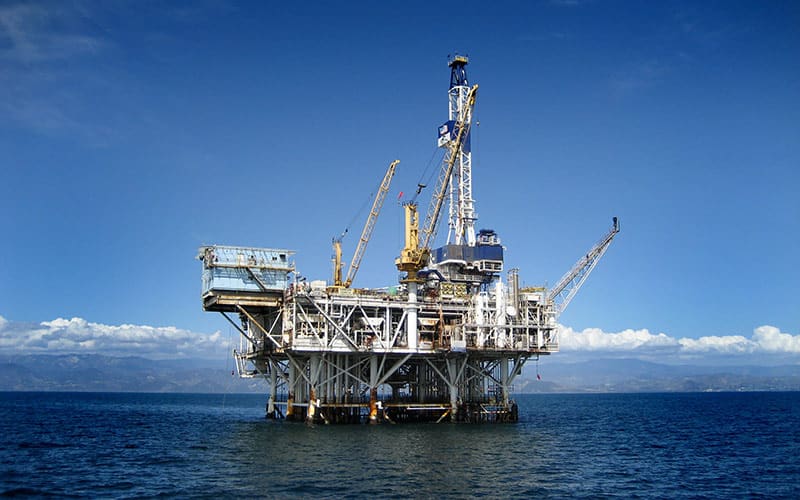
Offshore oil rigs, like this one in the Pacific Ocean, would be devastating to New England's waters and coastal communities. Photo: Shutterstock
This is part of an occasional series examining how the Trump administration may alter environmental laws.
Climate change-fueled extreme weather continues to rock the United States, from snowstorms swamping the south to wind-driven wildfires leveling neighborhoods in Los Angeles. The Trump administration has picked this moment to call for more offshore oil drilling. In other words: More fossil fuel use causing our planet to overheat, and more climate change-fueled “unnatural” disasters.
Is the Atlantic Ocean protected from offshore drilling?
Before leaving office, President Biden issued an executive order protecting 625 million acres of U.S. waters, including the Atlantic Ocean, from offshore oil drilling. In response, President Trump claimed, “I’ll unban it immediately. I will unban it. I have the right to unban it immediately.” Does he?
Nope! Not for the first time, President Trump claimed to have powers that the president doesn’t have. Since taking office, he hasn’t “unbanned” anything, since he doesn’t actually have the right to directly undo President Biden’s commonsense protections. While he’s attempted to revoke President Biden’s executive order, this is legally dubious at best, and it faces immediate challenges.
President Trump has also doubled down on fossil fuels by declaring an “national energy emergency” to justify expanding oil and gas infrastructure across the country – even though the United States is already producing a record high amount of energy. Any attempt to use this order to justify offshore drilling in the Atlantic would also face legal challenges.
Unfortunately, this doesn’t ensure the Atlantic’s safety from the threat of offshore drilling. President Trump does have some other potential pathways to overturn the ocean’s protections, including working with Congress to create new legislation.
How can we fight offshore drilling in our Atlantic Ocean?
If President Trump attempts to use Congress to strip protections from the Atlantic Ocean, CLF’s advocates will pressure lawmakers to stand up for our waters. CLF has a long, proud history of fighting destructive fossil fuel infrastructure in our waters.
In our earliest days, CLF stood against oil and gas drilling on George’s Bank, a thriving region of the ocean that supports vibrant marine life. When Canadian neighbors proposed oil exploration just north of our Gulf of Maine, we opposed it. We appreciate the ocean as a deeply interconnected ecosystem, and we know a threat to any part of it threatens the whole.
That’s why we’ll continue to oppose any efforts to drill through seafloors in pursuit of more planet-destroying fossil fuels. While oil and gas executives likely won’t target New England’s coast, oil infrastructure anywhere in the ocean poses significant hazards. Fossil fuel accidents are shockingly common and shockingly dangerous, and the damage always spreads.
A thriving, healthy ocean is core to New England’s identity. Whether you come from a traditional fishing family, enjoy the beaches near your home, or just love eating our wild caught seafood, New Englanders know the value of a flourishing Atlantic.
If we do need to push Congress to take a stand for our waters, we’ll need New Englanders to raise their voices as well. By signing up for updates from CLF, you’ll be the first to know how you can make a difference. Fighting back against assaults on our ocean – and our environment as a whole – can be challenging, so we make it simple for you. Please join us today.



